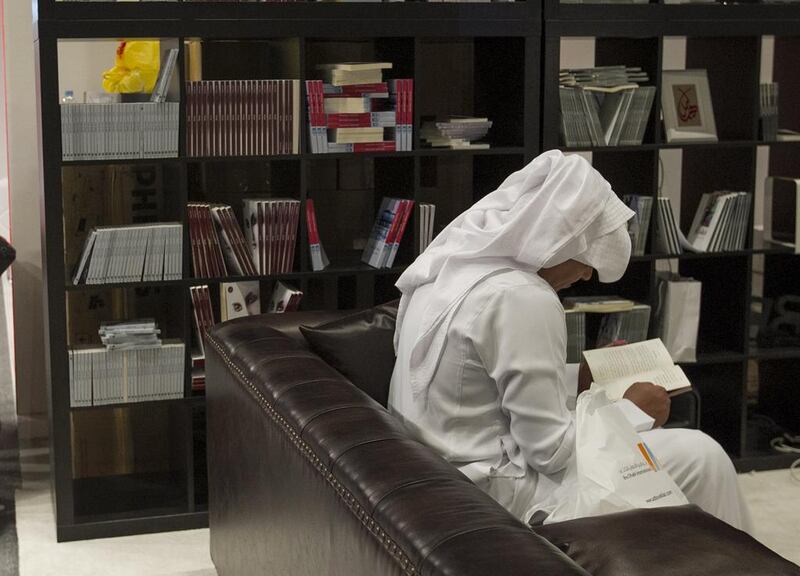I recently met two women who are tackling a near impossible task. They are trying to offer Arab women an online alternative to a diet of Turkish soap operas, cook shows and celebrity gossip magazines.
Their website features an array of both aspiring and established writers. They interview inspiring women from the region. They publish short stories and they share thought-provoking self-development videos.
“We are trying to change the nature of the conversation that Arab women have when they meet up for coffee in the morning,” one of them told me. Why exactly is this such a difficult task?
It all comes back to the general state of reading in the Arab world. According to estimates contained in a widely reported Arab Thought Foundation survey released three years ago, an average reader in the region spends just six minutes a year with a book.
You can pour cold water on that number if you wish – and you are right to at least question this figure – but other facts point to a widespread lack of interest in reading.
Arab countries’ output of books represents 1 per cent of the world total despite having a population that exceeds 5 per cent of the world’s total. And for those who do not fully subscribe to this kind of report, perhaps personal experiences can lend some credibility.
Two years ago I walked through the stalls of book distributors at the Sharjah International Book Fair in an attempt to promote my first book of poetry. I approached scores of distributors in a bid to convince them to carry my book in their stores. I repeatedly got turned down. Despondent, I made one last stop.
The outcome did not change, but this time I decided to ask for reasons.
The gentleman I spoke to was the owner of one of the major book distribution chains in the Arab world.
“Poetry doesn’t sell,” he told me. He advised me to take up a different genre. Apparently cook books and children’s stories do well, as long as they contain more images and fewer words.
When I asked him about his bestselling book, he pointed to one written by an Arab TV celebrity. As I reached out to take a look at the book, I realised it was written in colloquial Arabic. It was closer to a comedy skit than it was to a book.
I relayed this experience to my two Arab lady friends and asked them how they are managing to get their target audience to read. It turns out that they too are struggling.
The articles with the highest readership figures are the ones written to resemble gossip. They all carry an underlying message, but they are purposely formatted with a dramatic element.
They tell me that readers want simple language and a high entertainment factor. And even with that, readership is still low when compared with the outpouring of likes on a Facebook post of a funny video or a joke. They shared with me the story of a woman they know who has not read a single book in a decade.
So what’s behind this sad state of low readership in our region? Some point to illiteracy rates that today stand around 20 per cent in the Middle East region. Women form 60 per cent of that group.
Experts point to many other factors including a weak education system, one that is based on rote and training pupils to pass exams, rather than concentrating on curiosity and developing a passion for knowledge.
There are many reasons that make it critical to tackle the readership problem in the Arab world. Among them is one of particular importance.
The state of a society’s knowledge and thought leadership is closely linked to its triumph over chaos and turmoil. Author Vera Nazarian once said: “Whenever you read a good book, somewhere in the world a door opens to allow in more light.”
May there be more light in our part of the world.
Rana Askoul is a Dubai writer focusing on women and Middle East issues
On Twitter: @Ranaaskoul





